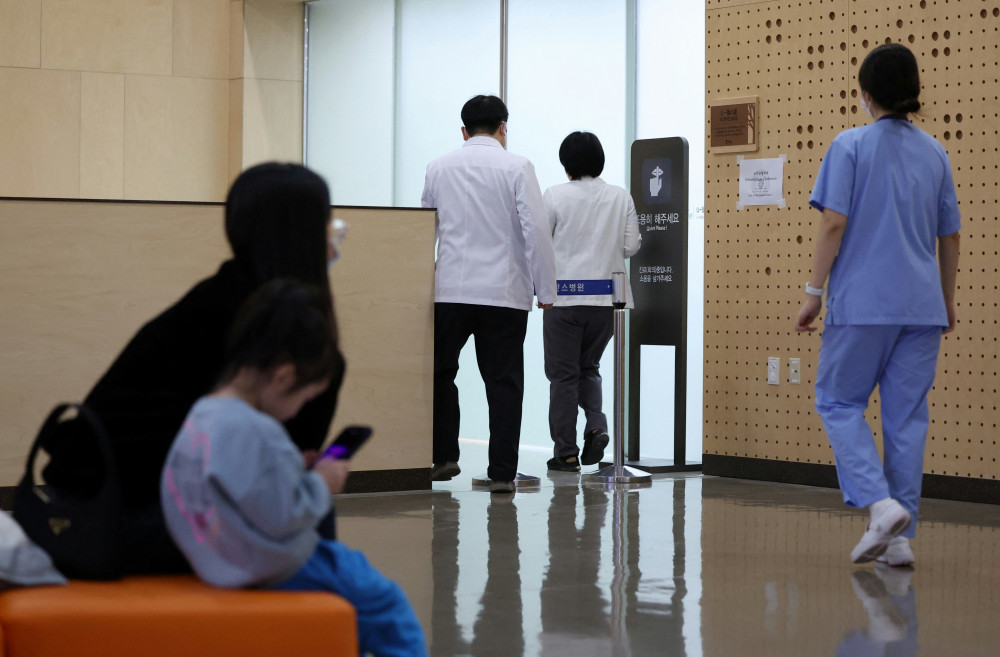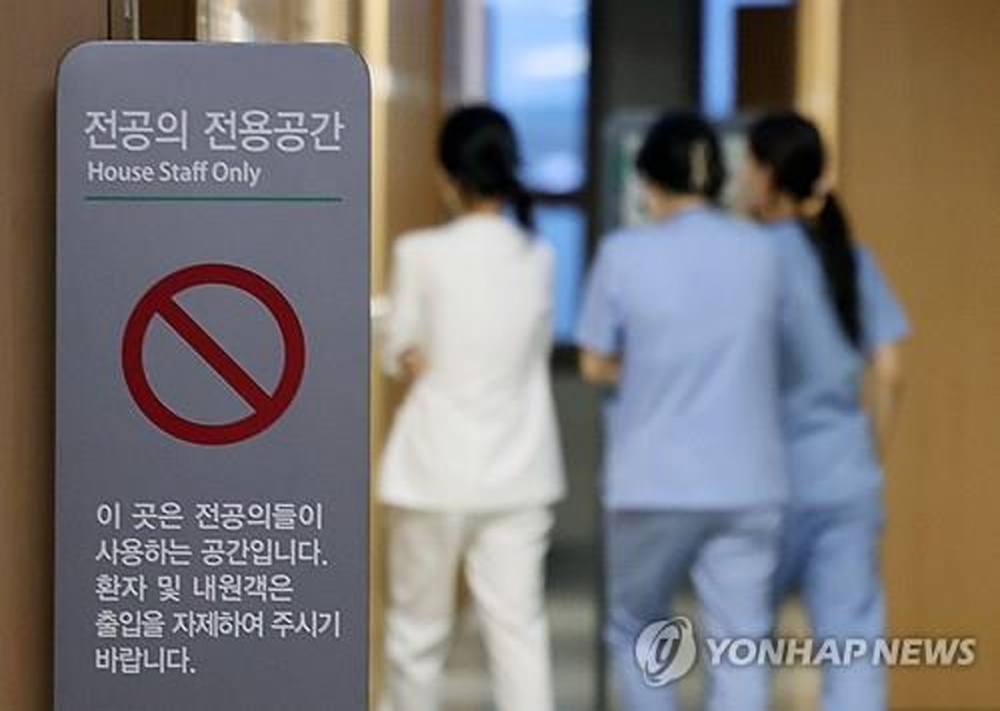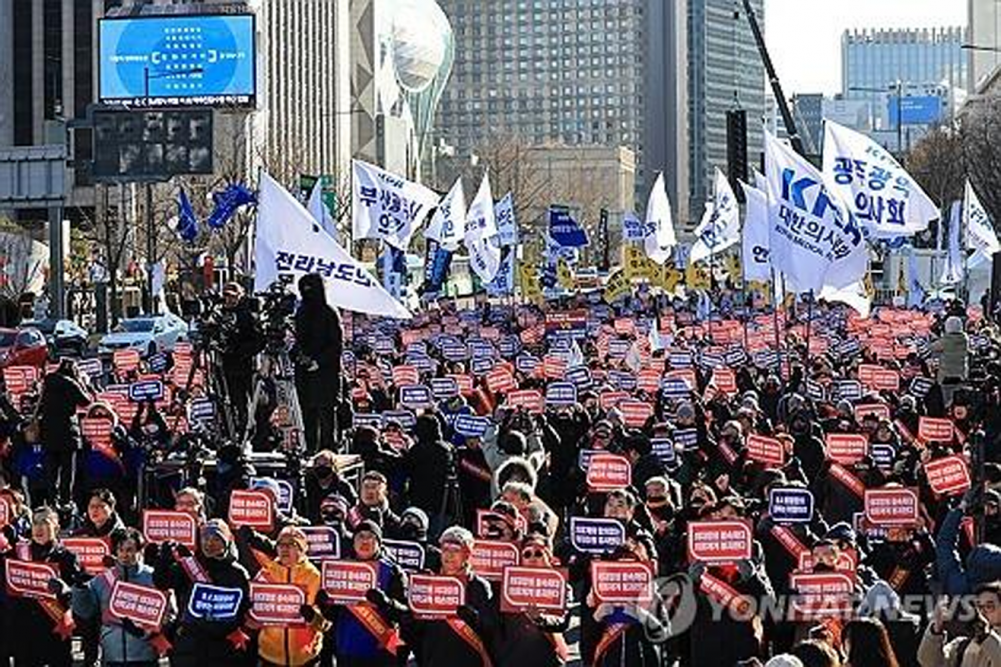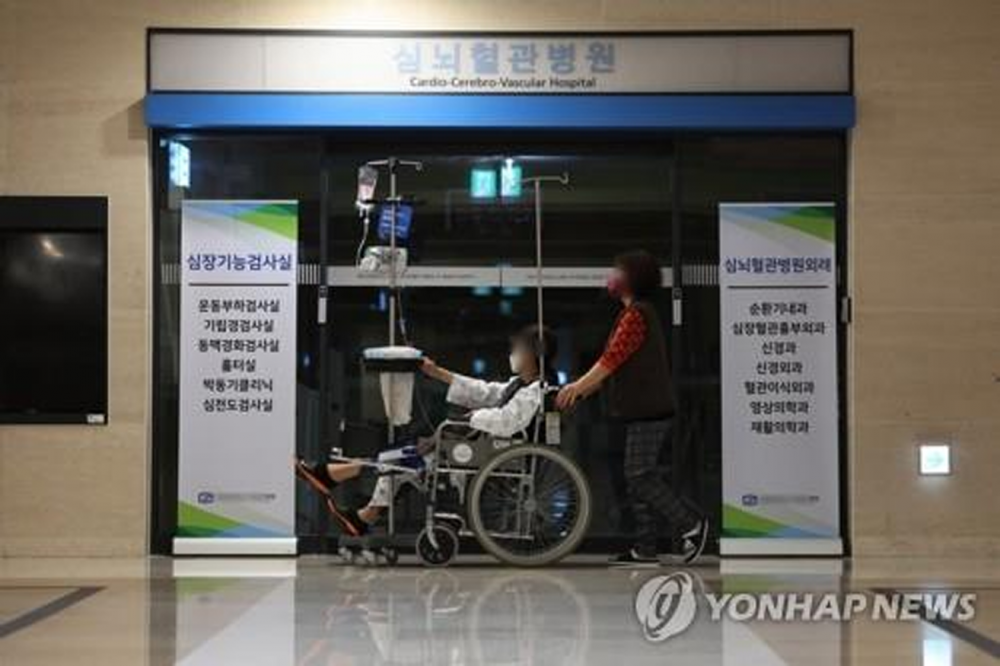
South Korea is facing a potential crisis in its medical services, as trainee doctors are expected to resign this week in protest against the government. They're protesting to oppose the government's plans to increase the annual number of students admitted to medical schools, which some believe is a move to gatekeep the profession. This could result in significant disruptions to patient care, with some patients already experiencing delays in their medical treatments.
Interns and resident doctors at the country's five biggest hospitals in Seoul have agreed to submit their resignations on February 19 and to go on strike starting at 6 AM on February 20. This protest is in response to the government's plan to raise the medical school enrollment quota by 2,000 next year for a total of 5,038 seats from the current 3,058 seats.
These five hospitals are Asan Medical Center, Samsung Medical Center, Severance Hospital, Seoul National University Hospital, and Seoul St. Mary's Hospital. Junior doctors at other clinics nationwide have also joined the protest.
Planned by 2,700 trainee doctors, representing 37% of the total doctors at the hospitals and forming the backbone of emergency duty physicians, the walkout could disrupt surgeries and potentially prompt over 13,000 other senior doctors in the same labor group to join in collective action.
Patients have already begun to feel the effects of the strike, with trainee doctors at Severance Hospital suspending their services, leading to a reduction in planned surgeries and procedures. The remaining four hospitals have also warned patients that their schedules may need to be adjusted.

The government has activated an emergency treatment system to mitigate the potential impact of the strike. This includes maintaining a 24-hour operation system at all of the country's 409 hospitals with emergency rooms, reallocating medical staff, shifting mildly ill patients to other clinics, and opening military hospitals to the public. Telemedicine services will also be fully allowed to ensure that chronic and mild patients receive the necessary care.
However, the government has also taken a firm stance against the strike, ordering all trainee doctors to continue providing medical treatment. Doctors who refuse to return to work could face up to three years in prison and the revocation of their licenses.
The government argues that the increase in the admission quota is necessary to address a shortage of doctors, particularly in rural areas and essential medical fields, such as high-risk surgeries, pediatrics, obstetrics, and emergency medicine. South Korea has fewer doctors per person than other developed countries, with only 2.6 doctors for every 1,000 people. According to the Organisation for Economic Co-operation and Development (OECD), this is one of the lowest rates. In contrast, Greece has the highest number, with 6.3 doctors per 1,000 people. Despite this, South Korean doctors are among the highest paid in developed countries, earning more compared to the average salary than doctors in any other OECD country. The country is expected to face a shortage of 15,000 doctors by 2035, particularly given the rapid aging of the population and South Korea having the lowest birth rate in the world.

However, doctors have expressed concerns that the government has not fully consulted them on the matter and that the increase in the number of medical students will compromise the quality of medical education and services. They argue that simply raising the number of medical students will not address the current imbalance of doctors in some areas and the lack of specialists in critical disciplines. They believe that the government should instead focus on protecting doctors from malpractice suits and prosecution and increasing medical fees, among other things.
The government's plan to increase the enrollment cap has been supported by the public, which has become increasingly frustrated with long wait times to see doctors. However, the move has also led to increased competition for medical school spots in South Korea, where doctors are among the best-paid professionals.

 SHARE
SHARE






















Increasing the quota of medical students is normal, it can always decrease depending on the need of each section, I do not see a problem with the government controlling the hospitals , private hospitals in Korea is big thing, lucky the country has a great health system
11 more replies